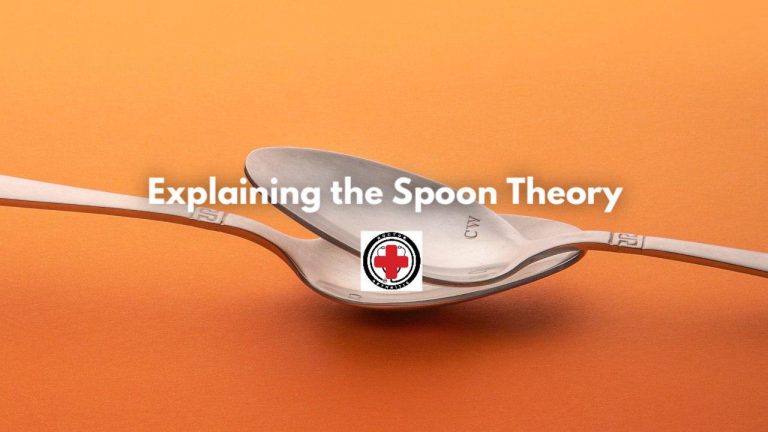With over 1 million orders

EVER WONDER WHERE THE #SPOONIE MOVEMENT STARTED?
The term spoons, used in the context of chronic illness, was coined by Christine Miserandino. In an effort to describe the real struggle of someone suffering from lupus, Christine grabbed spoons off the table and presented it to a friend. “Here you go, you have Lupus.” she said.
She then went on to explain that healthy people start their day with limitless possibilities—unlimited spoons. They have the energy to do whatever they want, all the tasks they need to accomplish for the day.
For people with chronic illness, they start their day with finite options—represented by the bouquet of spoons she held in her hand. She asked her friend to run down a list of daily, mundane tasks she had to do—showering, getting dressed, driving to work, walking to class, and so on.
With each task, Christine took a spoon a way–
“As she rattled off daily chores, or just fun things to do; I explained how each one would cost her a spoon. When she jumped right into getting ready for work as her first task of the morning, I cut her off and took away a spoon. I practically jumped down her throat. I said ” No! You don’t just get up. You have to crack open your eyes, and then realize you are late. You didn’t sleep well the night before. You have to crawl out of bed, and then you have to make your self something to eat before you can do anything else, because if you don’t, you can’t take your medicine, and if you don’t take your medicine you might as well give up all your spoons for today and tomorrow too.”
I quickly took away a spoon and she realized she hasn’t even gotten dressed yet. Showering cost her spoon, just for washing her hair and shaving her legs. Reaching high and low that early in the morning could actually cost more than one spoon, but I figured I would give her a break; I didn’t want to scare her right away. Getting dressed was worth another spoon.
I stopped her and broke down every task to show her how every little detail needs to be thought about. You cannot simply just throw clothes on when you are sick. I explained that I have to see what clothes I can physically put on, if my hands hurt that day buttons are out of the question. If I have bruises that day, I need to wear long sleeves, and if I have a fever I need a sweater to stay warm and so on. If my hair is falling out I need to spend more time to look presentable, and then you need to factor in another 5 minutes for feeling badly that it took you 2 hours to do all this.”
Christine’s metaphor is now a global symbol for the very real struggle that people with chronic illness have to deal with everyday. Usually, it refers to the experience of having an invisible disability. In Christine’s case, it was lupus, but a spoonie may refer to someone who suffers from conditions such as arthritis, migraine, lyme disease, fibromyalgia, just to name a few. These conditions often cause fatigue, manifesting in patients as having little to no energy, Ultimately, this affects their physical, mental, and emotional well-being. Unfortunately, people who suffer from these conditions are often perceived by healthy people who have no experience or exposure to chronic illness as nothing but able-bodied patients being lazy, inconsistent, and having poor time management skills.
But the simple truth, as Christine so beautifully articulated, is that we have a limited number of spoons. Chronic illness is not something that we can easily sleep off. It’s something that learn to live with and manage for the rest of our lives.
So in case you have yet to hear it today, we hope this post serves as a reminder that it’s OK to say no, to go easy on yourself, to focus on what you need to do to heal and recover.
To read Christine’s story in full, check out this link.
